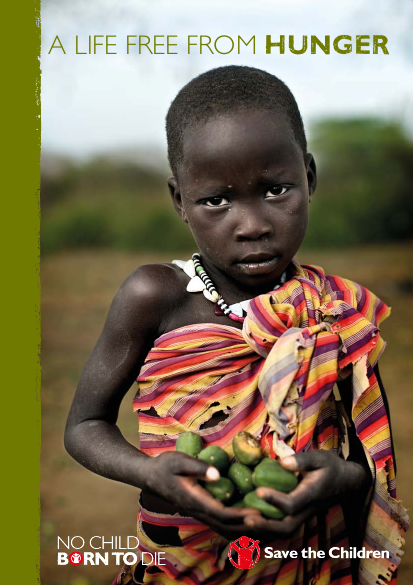
This report analyses the causes of malnutrition – focusing in particular on chronic
malnutrition and stunting in children – and identifies solutions. It sets out key
recommendations to help give every child a life free from hunger.
Chapter 1 outlines the scale of the malnutrition crisis and the causes and consequences
of malnutrition, and examines the relationship between economic growth and nutrition.
Nutrition experts have agreed 13 low-cost interventions that, if implemented to
complete coverage,15 could reduce stunting by 36% and child deaths by 25%, saving the
lives of 2 million children.16
Chapter 2 considers how these interventions – such as
exclusive breastfeeding, micronutrient supplementation and fortification – can improve
the quality of children’s health and well-being.
There is growing evidence that social protection and changes to agricultural policy and
practice have real potential to improve the diets of pregnant women and young children.
Chapter 3 examines how cash transfers and other social protection schemes can ensure
that families are better able to afford healthy food and services, such as medicines
and children’s health checks. In other words, it looks at how to provide more money
for nutrition.
Chapter 4, by contrast, looks at how to get more nutrition for the money. It argues
that agricultural policies are not working for the poorest and looks at how agricultural
production can be more suited to meet the nutritional needs of children.
Global leaders have committed to new nutrition initiatives to enhance investment in these solutions – for example, the Scaling Up Nutrition (SUN) movement. Chapter 5 examines the political factors that contribute to the global burden of hunger and malnutrition, and recommends how governments, multilateral agencies, business and individuals can play their part in tackling the problem.